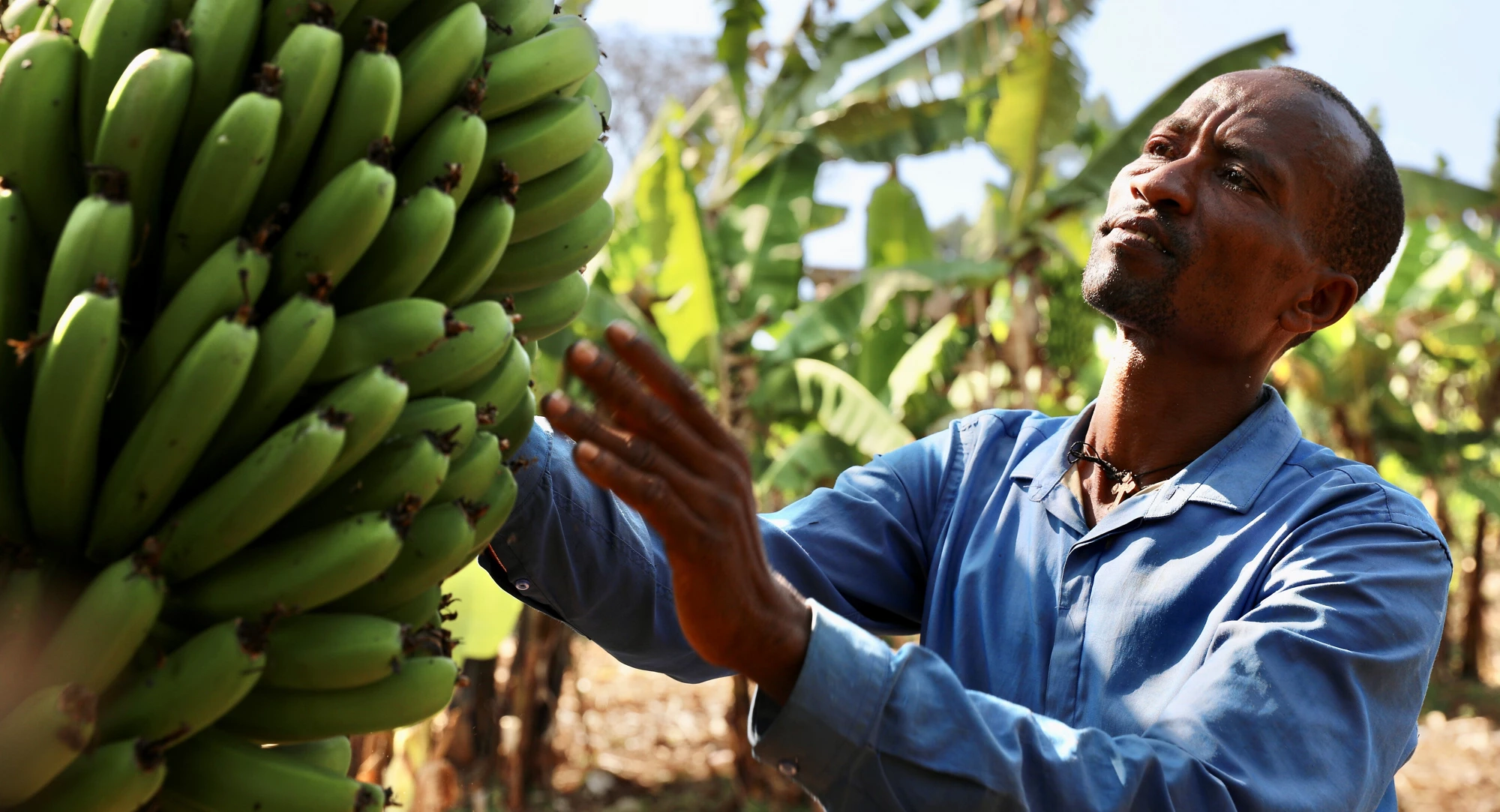 The pandemic is a stark reminder that planetary health and human health are interconnected and that economies can only thrive on a healthy planet. Photo: © World Bank
The pandemic is a stark reminder that planetary health and human health are interconnected and that economies can only thrive on a healthy planet. Photo: © World Bank
When people think about nature’s value, they often equate it with their experience of hikes in the mountains or even the sound of birds in the morning. Certainly, people have appreciated nature more during the COVID-19 pandemic, but its value goes beyond the aesthetics. It has further underscored the critical importance of nature, both for economies and for people. Healthy ecosystems, supported by rich biodiversity, are a primary source of growth, resilience and prosperity. Protecting nature and the services it provides – healthy soil, a steady supply of clean water, protection against storms – are integral to the health of communities, economies and indeed life on our planet.
That’s why last week, we joined World Bank Group President David Malpass and world leaders at the U.N. Summit on Biodiversity to underscore why biodiversity is a priority for the Bank and our client countries. The theme of the summit was “Urgent action on biodiversity for sustainable development” and upcoming World Bank research provides economic evidence that reinforces this urgency.
VIDEO: World Bank Group President David Malpass and World Bank Managing Director Mari Pangestu address the UN’s Biodiversity Summit on why biodiversity is important for economies and communities.
The Economic Case for Nature
Emerging results from this research suggest that the abrupt collapse of three key ecosystem services – tropical forests, wild pollinators and marine fisheries -- could result in GDP growth over the next decade being 21 percent lower than business as usual for low and lower middle-income countries (which account for nearly half of the world’s population). Sub-Saharan Africa, particularly reliant on forestry and pollination, could see a 26 percent drop in real GDP growth, according to preliminary estimates from the research.
The World Economic Forum tells us that more than half of global GDP ($44 trillion) is exposed to risks from nature loss. The good news is that there are ways to turn this around, including through strong policy actions that would help to reverse the dramatic declines in biodiversity over recent decades. For example, countries could benefit from repurposing market-distorting subsidies in agriculture, fisheries and fossil fuels. According to OECD estimates, governments spend over $500 billion each year in economic support to agriculture that is potentially harmful to biodiversity. But if these subsidies were repurposed and invested in a more sustainable type of agriculture, they could considerably slow the conversion of biodiversity-rich natural areas, and the permanent loss of many of the services they provide while delivering a net increase in 2030 GDP.
The World Bank’s investments support sustainable land management that improves productive agriculture while also looking after critical habitats and protecting vital ecosystems. For example, we are helping to create 116 million hectares of Marine and Coastal Protected Areas and 10 million hectares of Terrestrial Protected Areas. New World Bank programs such as PROBLUE, PROGREEN and the Global Program on Sustainability are supporting countries with the research and know-how to show the value of strong ecosystems to people, particularly those who rely on fisheries, forests and agriculture for their livelihoods. Through IDA, the part of the World Bank that helps the world’s poorest countries, we are committed to working with countries to put robust biodiversity plans in place to enhance a long-term sustainable development path that provides livelihoods, jobs and essential ecosystem services. Biodiversity and nature considerations are also factored into all World Bank investment operations through Standard 6 of the Environmental and Social Framework .
Private Sector Finance for Nature
It’s vital that we continue working with countries to recognize, measure and manage natural capital and ecosystem services they provide. The private sector also has an important role if we are to get to the scale that’s needed to reverse biodiversity loss. A new World Bank Group report, “Mobilizing Private Finance for Nature” looks at the current state of play for private finance for biodiversity and ecosystem services. The report argues that the financial sector has a critical role to play in addressing the global biodiversity crisis, and that governments and regulators hold the key to harnessing the power of the financial sector to mobilize private finance at scale to protect nature. It highlights a set of “Big 5” ideas for actions that can be taken to better integrate biodiversity risk and opportunities into private sector decisions.
Towards a Strong Global Biodiversity Framework
Much of the work at this week’s UN Summit on Biodiversity was geared towards planning for the best outcomes at the Conference of the Parties on the Convention on Biological Diversity (CBD), which will meet next year to decide on a new global biodiversity framework. This framework, which has been delayed due to the pandemic, offers an opportunity to get a new global deal for nature that could shift how we produce food, build infrastructure and protect the planet from climate change.
The pandemic is a stark reminder that planetary health and human health are interconnected and that economies can only thrive on a healthy planet. Stimulus packages can both address current needs to create jobs, while also meeting long-term goals, including the protection of biodiversity and ecosystem services. For example, Pakistan’s 10 Billion Tree Tsunami Program, a national reforestation effort, is the largest public safety net program to be implemented during the current downturn. The program has created more than 63,600 jobs, many of which are in rural areas and focus on hiring women and youth. We will be looking more closely at how countries can incorporate biodiversity and climate considerations into their recovery packages during a flagship event on October 14 at this year’s virtual Annual Meetings for the World Bank Group and the International Monetary Fund.



Join the Conversation